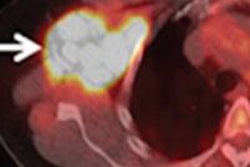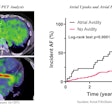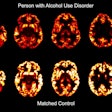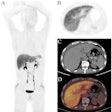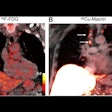Sunday, November 29 | 11:15 a.m.-11:25 a.m. | SSA15-04 | Room S505AB
Results from FDG-PET/CT scans can greatly influence decisions regarding treatment and surgery for patients with metastatic melanoma, according to a study from Eberhard Karls University Tübingen in Germany.Lead author Dr. Christina Pfannenberg, an associate professor in the department of radiology, and colleagues wrote that one key factor is the proper selection of patients for a complete metastasectomy, which can lead to increased long-term survival.
The researchers examined therapy management for patients with metastatic stage III and stage IV melanoma based on FDG-PET/CT and CT alone and how patients fared five years later. The study cohort included more than 50 patients who were staged for primary melanoma and another dozen people who were restaged for the disease.
Changes in therapy based on the FDG-PET/CT scans or CT alone ranged from surgery instead of systemic therapy to a change in systemic therapy. Patient outcome was evaluated by five-year survival rates.
FDG-PET/CT results changed therapy in more than 50% of the patients, including a major shift in strategy to surgery in more than 40% of the cases, the group found. The greatest number of changes was among patients in the primary staging group. In addition, approximately 30% of those in the restaging group had their treatment plans altered.
Most interestingly, among more than a dozen patients who were scheduled to have a metastasectomy based on CT alone, PET/CT excluded metastases in a majority and discovered further metastases in several other patients.
The five-year survival rate of the entire cohort was approximately 30%, with an increase to more than 30% for primary staging and a decline of approximately 15% in the restaging group.







